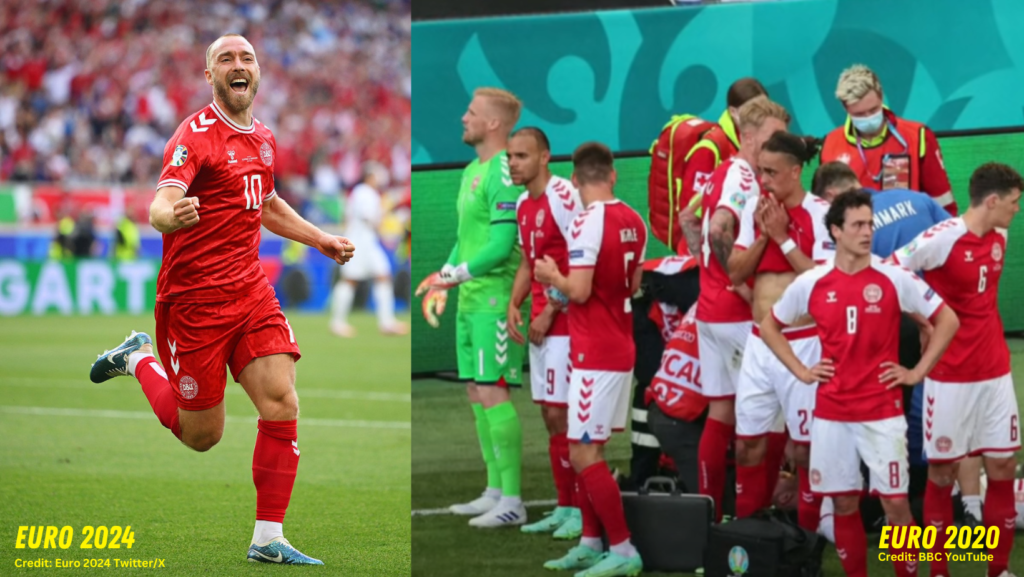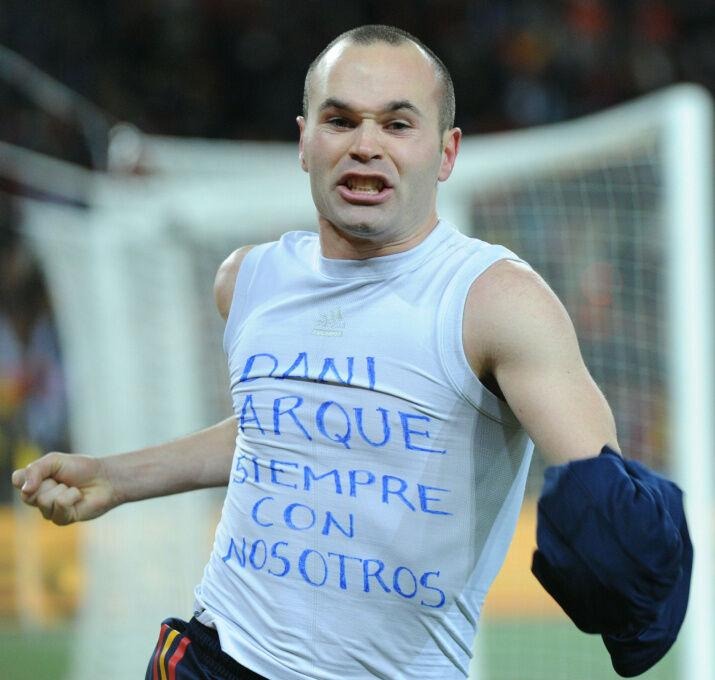
Christian Eriksen knows how lucky he is. His goal against Slovenia in Denmark’s Euro 2024 opener in Stuttgart came three years and five days after he collapsed on the pitch at the Parken Stadium in Copenhagen. It was his 22nd match back in Danish colours, and the sixth international goal in a new avatar.
The awareness to ghost into space as Denmark took a quick throw-in was typical Eriksen, as was the impeccable technique with which he half-volleyed the ball past Jan Oblak, one of the world’s best goalkeepers. Eriksen may have become a peripheral figure at Manchester United, often played out of position, but this display in a game that Denmark dominated was a reminder of the quality that helped make Tottenham Hotspur a top-four English Premier League (EPL) side during the seven years he spent there.
It was also affirmation that the football Gods love him. Those that suffer a cardiac arrest on the field usually don’t get a second chance to do what they love. Marc-Vivien Foe of Cameroon collapsed and died during a Confederations Cup match 21 years ago this June. Sevilla’s Antonio Puerta was just 22 when he was taken after an on-field collapse in August 2007, and Espanyol’s Dani Jarque passed away during a pre-season camp in 2009. As much as Spain’s World Cup and Euro victories between 2008 and 2012, what people also remember are the T-shirts through which the likes of Andres Iniesta and Cesc Fabregas paid tribute.

But perhaps the story closest to home for Eriksen would be Abdelhak Nouri, one of the most highly rated youth talents at Ajax at a time when Eriksen was establishing himself as one of the continent’s finest playmakers in Amsterdam. Unlike the others, ‘Appie’ to those that know and love him, didn’t die. He suffered permanent brain damage and will require round-the-clock care for the rest of his life.
Ideally, each Eriksen appearance and goal should not have an asterisk attached to it. That doubtless annoys him as he tries to get back to a semblance of normalcy. But there’s no denying that what happened to Eriksen matters. Without the presence of mind of Simon Kjaer, his teammate who moved him into the right position and started CPR, Eriksen wouldn’t be with us now. Equally important were the defibrillators at the ground and the trained personnel who used them to restart his heart.
There is a lesson there for every workplace where something like this might happen. But the greater learning is about the human spirit. Many in medicine advised Eriksen against coming back. Having illuminated European club football and major international tournaments for a decade, he had little left to prove.
But most sportspersons don’t play for the money or the fame. Those things matter, but the main reason they push themselves through pre-season and relentless training is because they love what they do. You can’t take that away from someone. Each time Eriksen pulls on the jersey, for club or country, it’s also a gesture of gratitude to all those who helped bring him back. And more importantly, it’s the ultimate tribute to Foe, Puerta, Jarque, Nouri and dozens of others who couldn’t be saved.



